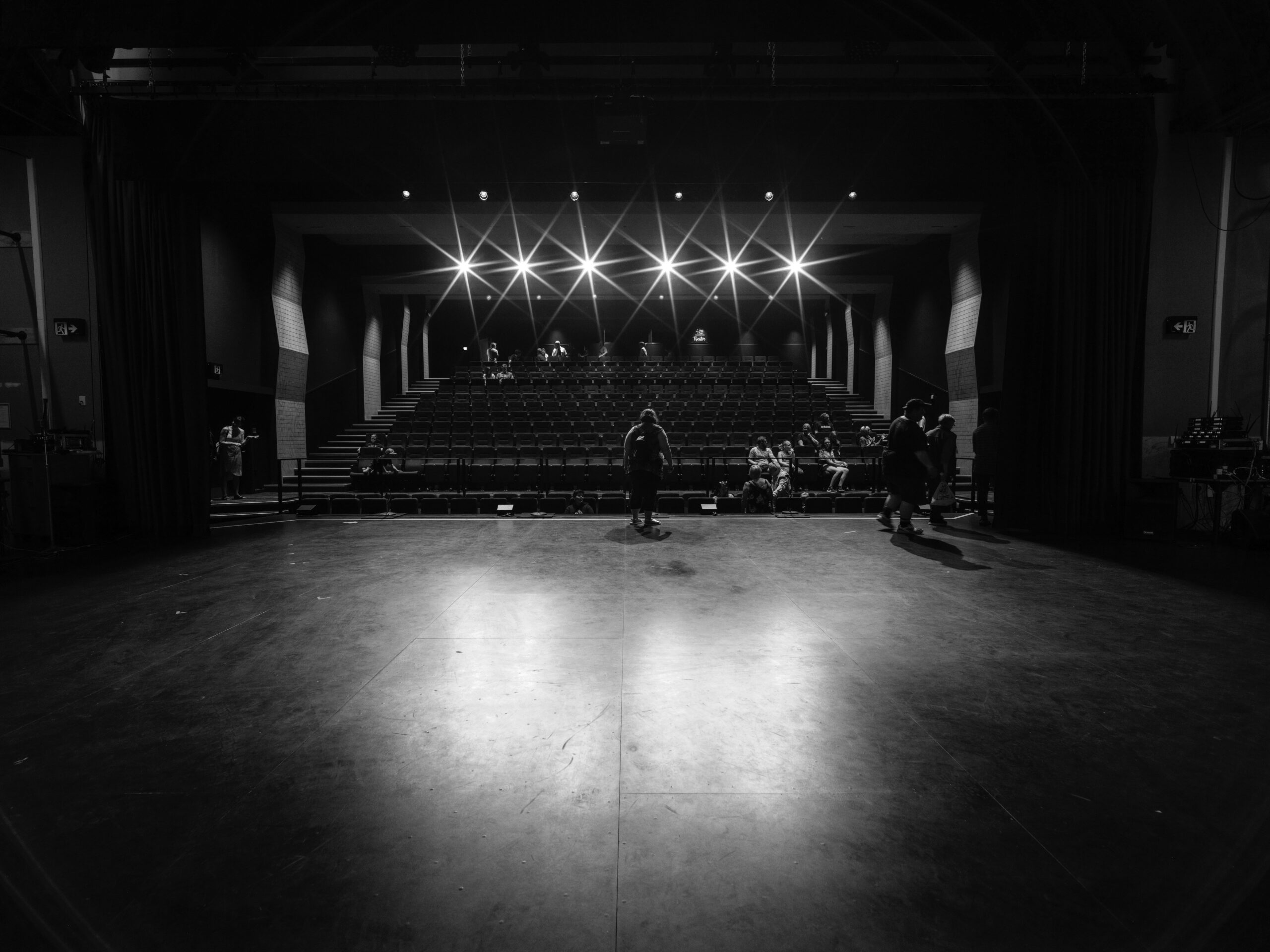
This month, Hulu and Netflix each released a documentary recounting the infamous debacle that was 2017’s Fyre Festival.[1] While both documentaries have been critically successful, and kicked off massive social media firestorms, Hulu was the streaming service that managed to snag interviews with the principal promoter and organizer behind the festival-that-wasn’t: Billy McFarland.[2]
This coup wasn’t for Netflix’s lack of trying. The director of Netflix’s Fyre: The Greatest Party That Never Happened, Chris Smith, stated that he indeed had slated to film with McFarland, but McFarland insisted on being paid.[3] Smith told the Los Angeles Times: “Billy told us he was getting an offer for $250,000 and didn’t want to work with [Hulu], so he’d work with [Netflix] if we paid him $125,000 . . . . It was hard, because we wanted the interview, but ethically, we just feel like it wasn’t right for him to benefit when other people had been hurt by his actions.”[4]
It’s a long-held principle in American journalism that subjects of interviews should not be paid.[5] It’s believed that credibility diminishes once money enters the transaction because the subject might feel he or she needs to provide the correct or desired answer, rather than the truth.[6] However, that hasn’t deterred even the most famous and respected documentarians from paying their subjects on occasion.[7] The Bouviers were allegedly paid for their time on the 1975 movie Grey Gardens, and even Stephen Hawking was paid “a considerable amount” for both the rights to his book, A Brief History of Time, and his appearance in the documentary version of the same title.[8] While perhaps unethical in the eyes of some journalists and scholars, it’s certainly not illegal to pay a subject for an interview, especially in the context of a documentary.
Ultimately, Hulu nabbed Billy. But both documentaries would similarly detail the nature of the zeitgeist that led to the clever (but deceitful) advertising of Fyre Festival, which enticed about 5,000 paying customers to an island in the Bahamas.[10] The massive event looked like it could be “the next Coachella.”[11] In a promotional video for Fyre Festival, released in January 2017, famous supermodels like Bella Hadid and Emily Ratajkowski—bikini-clad, jet-skiing, popping champagne bottles, even swimming with pigs—lauded the island “once owned by Pablo Escobar” as an extravagant setting for a once-in-a-lifetime event.[12] Some tickets for the festival cost up to $100,000 and those guests “were promised luxury accommodations,” including yachts and mansions, and “the best in food, art, music and adventure.”[13] The musical lineup included Blink-182, but the group wisely pulled out before the event took place.
In April 2017, attendees arrived on the island—to pure chaos.[15] One blogger, who spent $45,000 on tickets, travel, and accommodations, described it as a “building site”: “There were still workers, pick-up trucks and 18-wheelers everywhere.”[16] Fyre attempted to organize the festival in six to eight weeks, when planning for an event of this size typically takes a year.[17] Instead relaxing in their promised luxury accommodations that many had paid thousands of dollars for, guests scrambled to procure the only housing available: disaster relief tents.[18] An attendee’s photo of a pathetic looking cheese sandwich in a styrofoam box made the rounds online.[19] People huddled together in the island’s single, tiny airport, waiting for hours to depart.[20]
Unsurprisingly, the legal ramifications were serious. Billy McFarland is currently serving six years in prison for defrauding investors.[21] A host of class action law suits have been filed against Fyre Festival.[22] Two attendees were awarded $5 million in damages last year and presumably more success against the festival and its organizers is on the horizon.[23]
Other the legal ramifications are not so obvious. Prior to the festival, when that promotional video was going around, hundreds of social media “influencers” were paid to advertise the festival on their Instagram accounts.[24] One influencer in particular, Kendall Jenner, posted an Instagram announcing that some groups on her brother-in-law’s record label would be performing at Fyre Festival and providing a discount code for tickets.[25] It turned out neither Kendall Jenner nor Kanye West (nor any of his musical groups) showed up in the Bahamas.[26]
The legal issue, though, was that Jenner hadn’t supplied the requisite #ad or #sponsored hashtag that the Federal Trade Commission requires on paid Instagram advertisements for the sake of transparency.[27] In April 2017, following the Fyre Festival, the FTC sent out more than 90 letters to social media influencers, reminding them to “clearly and conspicuously disclose their relationships to brands.”[28] As the line between influencers as people and influencers as monetized brands becomes more hazy, the FTC’s enforcement of disclosing posts as advertisements might help prevent consumers from spending thousands of dollars on products, services, or music festivals as a result of misleading advertisements. Between FTC enforcement, the possibility of prison, and the millions of dollars in fines that Billy MacFarland is on the hook for[29], hopefully people in the future will be wary about defrauding others to make a quick buck.
Eliza Calvin is a second-year law student at Benjamin N. Cardozo School of Law and a Staff Editor of the Cardozo Arts & Entertainment Law Journal. She’s interested in the intersection between intellectual property and social justice.
[1] Tierney Bricker, Fighting Fyre with Fyre: The Biggest Differences Between Netflix and Hulu’s Fyre Festival Docs You’re Obsessed With, E! News (Jan. 23, 2019, 3:00 AM), https://www.eonline.com/news/1007272/fighting-fyre-with-fyre-the-biggest-differences-between-netflix-and-hulu-s-fyre-festival-docs-you-re-obsessed-with.
[2] Id.
[3] Id.
[4] Amy Kaufman, In the Fyre Fest documentary battle, will Hulu or Netflix come out on top?, L.A. Times (Jan. 16, 2019, 3:00 AM), https://www.latimes.com/entertainment/movies/la-et-mn-fyre-festival-documentaries-netflix-hulu-20190116-story.html.
[5] Michael Cieply and Ben Sisario, Film on Abu Ghraib Puts Focus on Paid Interviews, N.Y. Times (Apr. 26, 2008), https://www.nytimes.com/2008/04/26/movies/26morris.html.
[6] Id.
[7] Id.
[8] Id.
[9] See Gregory R. Kanaan, Cinema Law: What are the Rights of a Documentary Subject?, MovieMaker (Nov. 28, 2015), https://www.moviemaker.com/archives/series/cinema_law/cinema-law-what-are-the-rights-of-a-documentary-subject/.
[10] Amelia Abraham, Fyre Festival: ‘I paid $4,000 to go. It’s fair game to make fun of me’, The Guardian (Dec. 20, 2017, 6:10 AM), https://www.theguardian.com/global/2017/dec/20/fyre-festival-i-paid-4000-to-go-its-fair-game-to-make-fun-of-me.
[11] Id.
[12] Kaufman, supra note 4.
[13] Michael Baggs, Fyre Festival: Inside the world’s biggest festival flop, BBC (Jan. 18, 2019), https://www.bbc.com/news/newsbeat-46904445.
[14] Fyre Fraud (Hulu 2019), https://www.hulu.com/movie/fyre-fraud-e47078f3-1c0e-49a8-9da9-c571a7a20fec.
[15] Baggs, supra note 13.
[16] Id.
[17] Id.
[18] Fyre Fraud, supra note 13.
[19] Id.
[20] Id.
[21] Frank Lovece, Fyre Fest promoter Billy McFarland: ‘I made many wrong and immature decisions’, NewsDay (Jan. 22, 2019, 5:00 PM), https://www.newsday.com/entertainment/celebrities/billy-mcfarland-fyre-festival-1.26282190.
[22] Jon Blistein, Fyre Festival Attendees Win $5 Million Lawsuit, Rolling Stone (July 3, 2018, 4:44 PM), https://www.rollingstone.com/music/music-news/fyre-festival-attendees-win-5-million-lawsuit-695806/.
[23] Id.
[24] Fyre Fraud, supra note 14.
[25] Rachel Paige, Kendall Jenner’s Fyre Fest Instagram May Have Actually Changed Influencer Culture, Refinery29 (Jan. 18, 2019, 1:11 PM), https://www.refinery29.com/en-us/2019/01/221813/kendall-jenner-fyre-festival-lawsuit-instagram-ads.
[26] Fyre Fraud, supra note 14.
[27] See Paige, supra note 25 (Kendall Jenner was paid $250,000 for that single advertisement).
[28] Kurt Wagner, Instagram wants influencers to clearly label their paid posts, ReCode (Jun. 14, 2017, 9:00 AM), https://www.recode.net/2017/6/14/15792402/instagram-celebrities-branded-paid-content-posts-ads-advertising-ftc (“A recent study from marketing firm Mediakix found that 93 percent of sponsored posts aren’t clearly disclosed, which means they aren’t labeled clearly enough for users to understand that they’re looking at an ad.”).
[29] Lovece, supra note 21.



